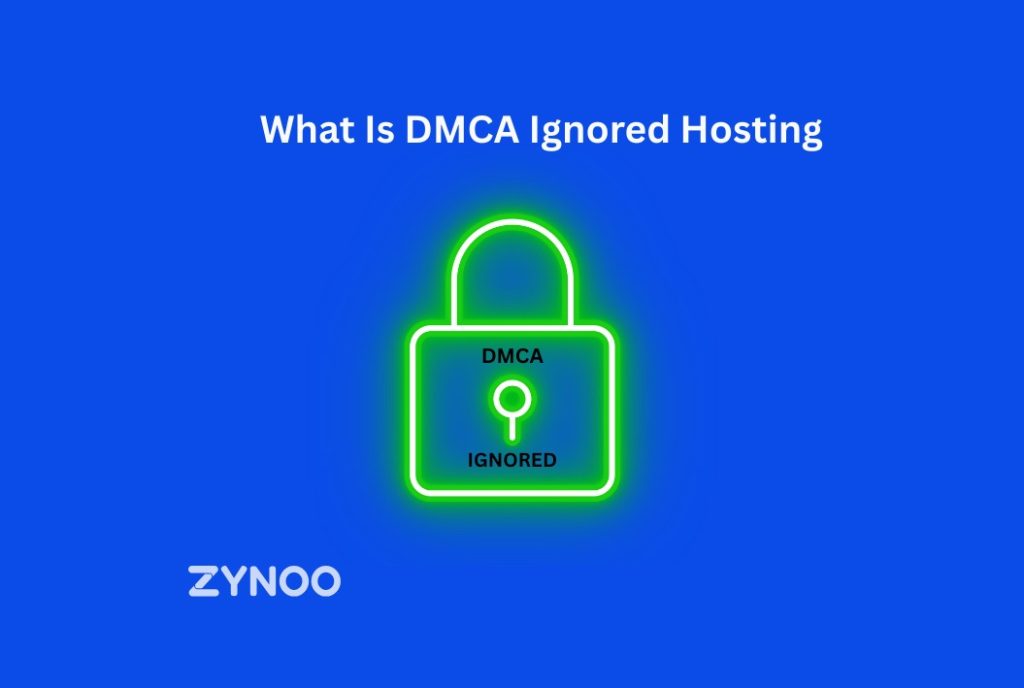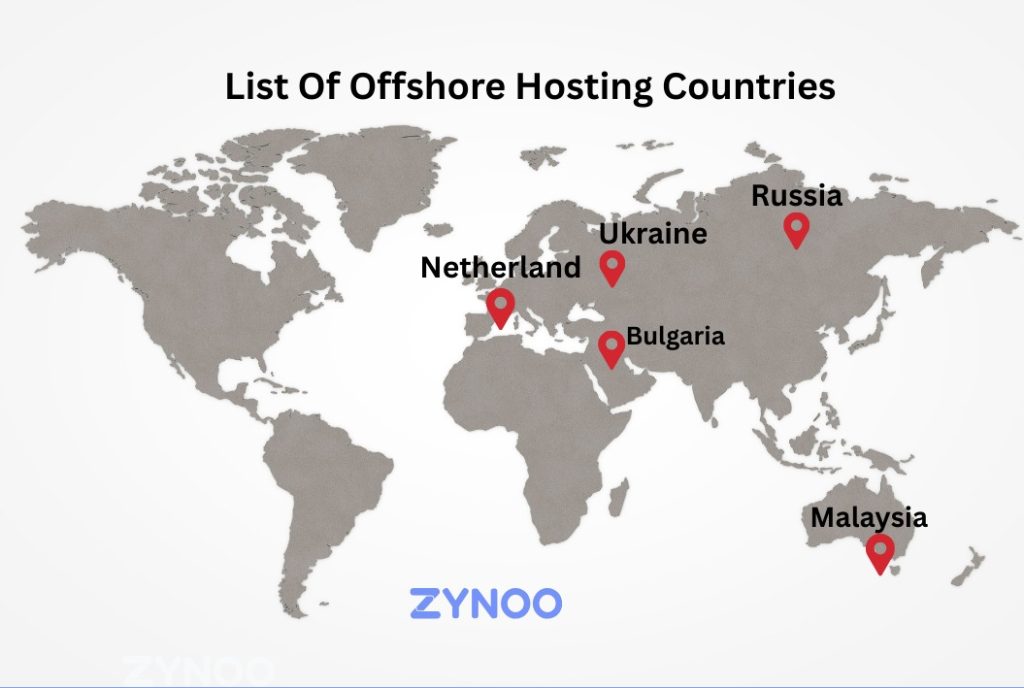Introduction
The world of web hosting is filled with different terms and models, some more popular than others. One that often piques curiosity is DMCA Ignored Hosting. For some, it’s a way to keep content online without interference, while for others, it’s associated with piracy and copyright disputes.
Unlike mainstream hosting providers that follow the Digital Millennium Copyright Act (DMCA), these hosts operate differently. They claim to “ignore” or bypass takedown notices that usually require websites to remove copyrighted content. But what does that mean in practice, and why does it matter for online businesses, creators, and users?

What is DMCA Ignored Hosting?
DMCA Ignored Hosting refers to hosting services, often based outside the United States, that do not comply with DMCA takedown requests. In other words, if a copyright holder reports a file or website on their servers, the provider may not take immediate action.
This type of hosting is often associated with:
- Offshore jurisdictions with less strict copyright enforcement.
- Websites that handle sensitive, controversial, or disputed content.
- More content freedom than standard hosting.
It’s important to recognize that while these providers may ignore U.S.-based DMCA requests, they still comply with local laws. That means content isn’t entirely outside regulation.
Understanding the DMCA
The Digital Millennium Copyright Act (DMCA), enacted in 1998 in the U.S., aims to strengthen protections for copyright holders in the digital age. Its primary mechanism is the takedown notice—a process allowing rights holders to request the removal of copyrighted content from online platforms.
Most hosting companies worldwide, especially those with U.S. connections, respond promptly to DMCA requests to avoid liability. Hosting that ignores DMCA claims has become an alternative for those who want to publish or distribute content without the risk of immediate takedowns.
However, because copyright law is enforced internationally through treaties and agreements, the DMCA ignored hosting does not guarantee permanent protection.
How DMCA Ignored Hosting Works
The main principle behind DMCA ignored hosting is jurisdictional advantage. By operating in countries where DMCA laws don’t apply, these providers can set their own policies.
Common features include:
- Servers located in offshore regions such as Eastern Europe, Asia, or small island nations.
- Policies stating that they will not honor DMCA requests directly.
- Support for high-risk or copyright-sensitive websites.
While this can create more freedom for certain types of content, it also means the burden of compliance falls entirely on the website owner.
Industries and Use Cases
DMCA ignored hosting is not limited to one type of user. It attracts a range of websites, including:
- File-sharing platforms that host movies, music, or software.
- Streaming websites broadcasting sports or entertainment content.
- Adult entertainment providers with disputed ownership issues.
- Political or activist sites in countries with censorship restrictions.
This mix of uses highlights the dual role of the service: it can support both free expression and activities that may raise legal or ethical issues.
Benefits of DMCA Ignored Hosting
From an editorial point of view, the appeal of this kind of hosting comes from several perceived advantages.
- Content freedom – fewer restrictions compared to traditional hosting.
- Privacy advantages – some offshore providers offer enhanced anonymity.
- Resistance to takedowns – websites stay online longer, even under copyright disputes.
For organizations handling sensitive topics or working in restrictive environments, these benefits can seem very important.
Risks and Challenges
Alongside the benefits come substantial challenges:
- Legal exposure – copyright holders can still pursue legal action across borders.
- Security concerns – offshore hosts may not offer the same data protections.
- Reputation risks – businesses using these services can appear less credible.
- Instability – servers may be seized, or providers may shut down unexpectedly.
These risks underline the importance of carefully weighing the decision before considering such hosting.
Legal Implications
While DMCA-ignored hosting operates outside the U.S., international copyright enforcement is complicated. Countries often work together to fight large-scale piracy, and copyright owners can still seek injunctions, block access, or file lawsuits.
This makes DMCA-ignored hosting a legal gray area rather than a guaranteed safe haven. Businesses must remember that hosting content in another country does not remove global responsibility.
DMCA Hosting vs Offshore Hosting
These two terms often overlap, but they are not identical.
- Offshore hosting refers to hosting services in another country, typically for performance, privacy, or legal reasons.
- DMCA ignored hosting specifically refers to hosts that don’t comply with copyright takedowns.
Not all offshore hosting is DMCA ignored, and not all DMCA ignored hosting is fully offshore.
Countries Linked with DMCA Ignored or Offshore Hosting
DMCA-ignored hosting is often linked to offshore providers located in regions where U.S. copyright laws, such as the DMCA, do not directly apply. Some of the commonly mentioned locations include:
- Netherlands – Popular for liberal hosting policies.
- Russia & Ukraine – Known for limited enforcement of foreign copyright claims.
- Romania & Bulgaria – Affordable infrastructure with looser oversight.
- Caribbean nations (Belize, Panama, Bahamas) – Small jurisdictions with offshore hosting options.
While these regions are often mentioned in hosting discussions, it’s important to note that local copyright laws still apply, and international agreements allow rights holders to pursue action across borders.

Ethical Considerations
Beyond legality, there’s an ethical debate. On one hand, ignoring takedowns can enable freedom of speech and protect political voices in restrictive regions. On the other hand, it can support piracy and copyright infringement.
This duality makes DMCA ignored hosting one of the more controversial models in the industry.
SEO and Business Impacts
From a search engine perspective, websites hosting DMCA ignored content can face penalties. Google and other platforms often delist infringing material, decreasing visibility.
For legitimate businesses, this can pose challenges in maintaining an online presence. Even if the hosting provider ignores takedowns, search engines may still enforce compliance.
The Future of DMCA Ignored Hosting
With global copyright laws tightening, the future of DMCA ignored hosting is uncertain. International cooperation on piracy and digital rights enforcement continues to grow.
At the same time, debates about free speech, censorship, and internet freedom keep the topic relevant. It’s likely that DMCA ignored hosting will stay a niche option, influenced by both demand and regulatory pressures.
Frequently Asked Questions
It is a type of hosting service, usually offered offshore, where providers claim not to comply with DMCA takedown requests.
It depends on the jurisdiction. While some providers operate in countries without DMCA laws, international copyright rules still apply.
Some use it for privacy, free speech, or to avoid takedowns on controversial content. Others use it for copyright-infringing purposes.
Regions often linked include the Netherlands, Russia, Ukraine, parts of Eastern Europe, and some Caribbean nations.
Yes. Even if a hosting provider ignores DMCA requests, Google and other search engines often act on them. In practice, this means infringing pages can be removed from search results, reducing visibility and traffic, regardless of whether the site remains online.
Conclusion
DMCA Ignored Hosting exists at the crossroads of legality, technology, and ethics. It provides more freedom than regular hosting but also involves risks that shouldn’t be ignored.
For some, it’s a tool for privacy and free expression. For others, it’s associated with piracy and copyright disputes. In any case, understanding how it works, why it exists, and the challenges it poses helps businesses and individuals make informed decisions in the digital world.



